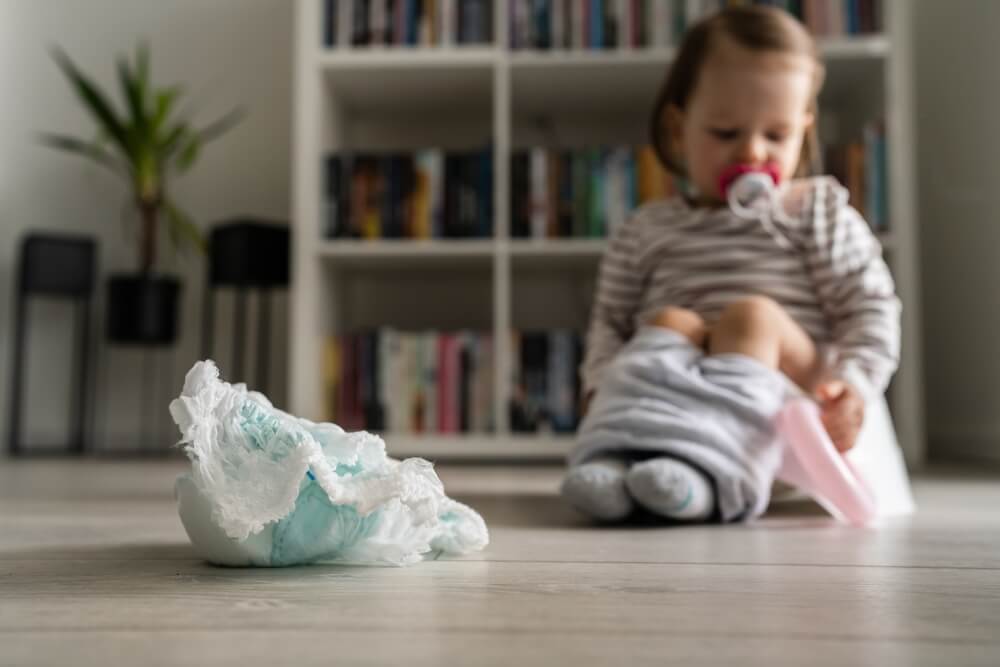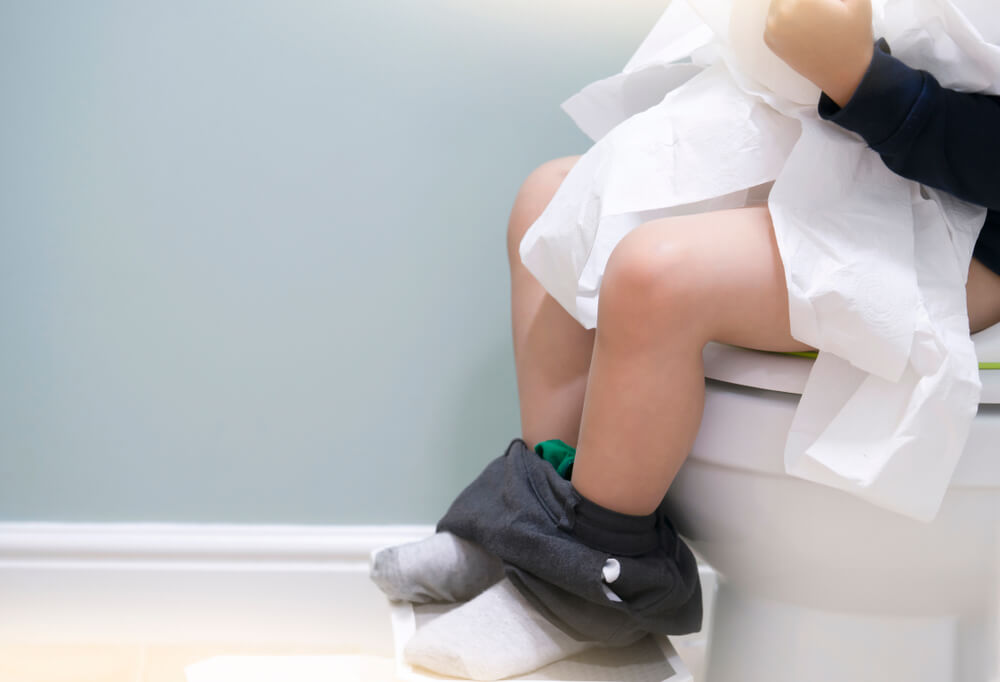As a parent or caregiver, encountering diarrhea in toddlers can be a stressful experience. It’s a common issue many parents face, especially those seeking pediatric care in Miami, Florida. Understanding what causes diarrhea in toddlers, how to manage it effectively, and when to seek medical attention is crucial. This comprehensive guide aims to demystify toddler diarrhea and provide practical advice for handling these tummy troubles.
Understanding Diarrhea in Toddlers

What Is Diarrhea in Toddlers?
Diarrhea in toddlers refers to loose, watery stools that occur more frequently than usual. It can be a short-lived issue or last for a few days. Recognizing the signs of diarrhea in kids is the first step in addressing the problem.
Common Causes
What causes diarrhea in toddlers? Several factors can contribute, including viral or bacterial infections, food sensitivities, and reactions to antibiotics. Sometimes, toddler diarrhea may be a sign of a more serious condition.
Health Risks Associated with Diarrhea in Children
Dehydration Risk
One of the main concerns with children’s diarrhea is the risk of dehydration. Toddlers can quickly lose vital fluids and electrolytes, which can lead to serious health issues if not addressed promptly.
Nutritional Concerns
Ongoing diarrhea in children can also impact their nutritional status, as essential nutrients are not properly absorbed. This can affect a child’s growth and development if not managed appropriately.
Managing Diarrhea in Toddlers
At-Home Care
For mild cases of toddler diarrhea, home care is often sufficient. This includes keeping your child hydrated, offering a bland diet, and avoiding dairy products if they seem to exacerbate the issue.
Medications and Treatments
In some cases, over-the-counter remedies may help. However, it’s important to consult a healthcare professional before administering any medication for diarrhea in kids, as some can be harmful.
When to Seek Medical Attention
Recognizing Serious Symptoms
Knowing when to seek medical help for diarrhea in toddlers is crucial. If your child shows signs of severe dehydration, blood in the stool, or persistent diarrhea, it’s important to contact a healthcare provider immediately.
The Role of Pediatric Care
For those in tropical areas like Miami, Florida, accessing quality pediatric care for concerns like toddler diarrhea is essential. A pediatrician can provide tailored advice and treatment options based on your child’s specific needs.
The Role of Probiotics in Managing Diarrhea in Toddlers
Beneficial Bacteria
Probiotics, often referred to as “good” bacteria, can play a crucial role in managing diarrhea in children. These beneficial bacteria help restore the natural balance of the gut flora, which can be disrupted during episodes of diarrhea.
Choosing the Right Probiotics
When considering probiotics for toddler diarrhea, it’s important to choose strains that are specifically studied for efficacy in children, such as Lactobacillus GG or Saccharomyces boulardii. Consulting with a healthcare professional can help in making an informed choice.
The Impact of Diet on Toddler Diarrhea
Identifying Food Triggers
In some cases, diarrhea in toddlers can be linked to certain food sensitivities or allergies. Common culprits include dairy, gluten, and certain fruits. Keeping a food diary can help identify potential triggers.
Gradual Dietary Changes
If food sensitivity is suspected, gradually adjusting the child’s diet under medical supervision can be beneficial. This approach helps in pinpointing the exact cause of diarrhea in kids and aids in dietary planning.
When dealing with diarrhea in children, adjusting their diet can be beneficial. Foods like bananas, rice, applesauce, and toast (the BRAT diet) are often recommended.
Role of Hydration Solutions
Importance of Oral Rehydration Salts (ORS)
In the management of diarrhea in children, Oral Rehydration Salts (ORS) play a pivotal role. ORS solutions are scientifically formulated to contain the right balance of salts and sugars to help rehydrate a child effectively.
Homemade Solutions
In situations where commercial ORS is not available, a homemade solution of clean water, salt, and sugar can be used as a temporary measure. However, the exact proportions should be confirmed with a healthcare provider to ensure safety and effectiveness.
Understanding the Role of Antibiotics
Antibiotics and Diarrhea
While antibiotics are essential for treating certain bacterial infections, they can sometimes lead to diarrhea in toddlers. This occurs due to the disruption of the gut’s natural bacterial balance.
Judicious Use of Antibiotics
It’s important to use antibiotics only when prescribed by a healthcare professional and to complete the full course of treatment to prevent antibiotic resistance and reduce the risk of diarrhea in kids.
Educating Childcare Providers
Training and Awareness
Childcare providers should be well-trained in recognizing and managing early signs of diarrhea in toddlers. They play a critical role in preventing the spread of infections within childcare settings.
Policy and Procedure
Establishing clear policies and procedures for managing diarrhea in children within childcare and preschool settings is important. This includes guidelines for when to send a child home and how to sanitize facilities effectively.
Preventative Measures for Diarrhea in Toddlers
Hygiene Practices
Good hygiene practices, such as regular handwashing, can prevent the spread of infections that cause diarrhea in toddlers. Teaching these habits early is crucial.
Vaccinations
Certain vaccinations can help prevent viral infections that lead to diarrhea in kids. Discussing vaccination options with your pediatrician is an important step in preventative care.
Understanding Chronic Diarrhea in Toddlers
When It’s More Than Just a Bug
Chronic or recurrent diarrhea in children might indicate underlying conditions such as food intolerances or more serious gastrointestinal disorders. Continuous monitoring and medical evaluation are important.
Working with Specialists
In cases of chronic toddler diarrhea, working with pediatric gastroenterologists or dietitians can be beneficial. They can help identify underlying causes and develop effective treatment plans.
The Emotional Impact on Families
Supporting the Child and Family
Dealing with frequent or severe diarrhea in toddlers can be emotionally taxing for the entire family. Finding support, whether through healthcare providers, support groups, or community resources, is important.
Building Resilience
Helping your child and family build resilience during these challenging times is key. This includes maintaining routines, providing emotional support, and ensuring open communication.
The Role of Community and Education

Community Health Initiatives
Community health initiatives can play a significant role in educating families about managing and preventing diarrhea in toddlers. Workshops, informational sessions, and resource distribution can be very helpful.
Importance of Public Awareness
Raising public awareness about the causes and management of diarrhea in kids is crucial. It can lead to better community health outcomes and reduce the stigma or anxiety associated with these common issues.
Conclusion: Partnering with Healthcare Providers
Managing diarrhea in toddlers can be a challenging journey, but it’s one that you don’t have to navigate alone. In Miami, healthcare providers like Doctor Ana offer invaluable support and expertise in pediatric care. By staying informed, taking preventative measures, and seeking professional advice when needed, parents can effectively manage diarrhea in their toddlers, ensuring their little ones stay healthy and happy.




